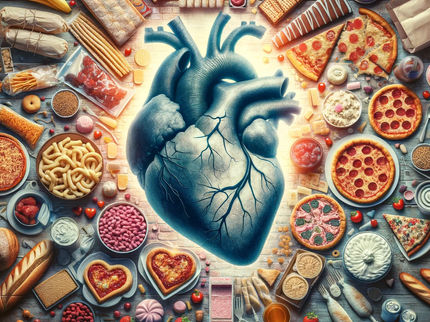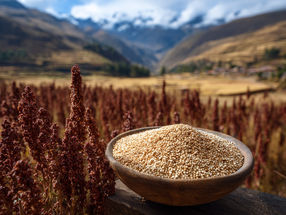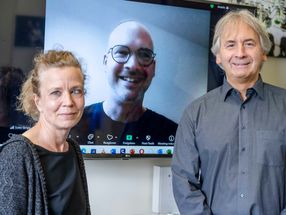Chocolate’s tasty flavors might pose a risk in other desserts
Genotoxic substances in baked sweets?
What makes chocolate taste and smell so delicious? Chemistry, of course! A variety of molecules work together to create that unmistakable aroma, but those same molecules might carry some unwanted health effects if there are too many around. According to research published in ACS’ Journal of Agricultural and Food Chemistry, while many of the compounds appeared in chocolate in low enough concentrations to be safe, higher amounts were found in some baked sweet treats.
When making chocolate, cocoa beans are roasted to help their chocolatey flavors shine. During this process, new molecules like α,β-unsaturated carbonyls are formed when they react with other ingredients under high temperatures. This class of carbonyls is highly reactive and potentially genotoxic, or able to cause damage to DNA when consumed. Though naturally found in many foods, these carbonyls are also used as flavoring additives, and some have been banned in the European Union, including the buttery-tasting furan-2(5H)-one. To better understand how these molecules form naturally in foods, and whether or not they are present in levels that could pose a health concern, Alexandre Dusart and colleagues tested chocolates and other sweet treats for 10 different α,β-unsaturated carbonyls — some of which have been confirmed as safe by the European Food Safety Authority, while others are still under evaluation.
The team created its own chocolates and found that α,β-unsaturated carbonyls formed during roasting and after the addition of cocoa butter; however, their concentrations remained too low to pose any health concerns from consuming the chocolates. Next, researchers screened 22 commercially available desserts, including crepes, waffles, cakes and biscuits, either with or without chocolate. In these packaged treats, they found even lower concentrations of nine of the 10 carbonyls compared to the chocolates.
The remaining carbonyl — genotoxic furan-2(5H)-one — appeared in much higher concentrations in the crepe and cake samples, reaching up to 4.3 milligrams per kilogram. Considering that the recommended threshold for genotoxic substances is only 0.15 micrograms per person per day, consuming these desserts could exceed that limit, though additional studies are needed to accurately assess the potential health risk.
Researchers concluded that the furan-2(5H)-one molecule likely formed during the baking process and did not seem to correlate with the amount of chocolate present in the packaged desserts. The team says that this work helps to better understand where these carbonyls come from in chocolate and highlights the importance of monitoring flavorings in food to keep consumers informed and safe.
Original publication
Other news from the department science
Most read news
More news from our other portals
See the theme worlds for related content
Topic world Food safety
Food safety is at the heart of the food and beverage industry. It ensures that the food we eat every day is not only nutritious, but also free of harmful contaminants. From field to plate, the industry monitors and regulates every step of the process with strict quality controls, advanced testing methods and continuous research.

Topic world Food safety
Food safety is at the heart of the food and beverage industry. It ensures that the food we eat every day is not only nutritious, but also free of harmful contaminants. From field to plate, the industry monitors and regulates every step of the process with strict quality controls, advanced testing methods and continuous research.






























































